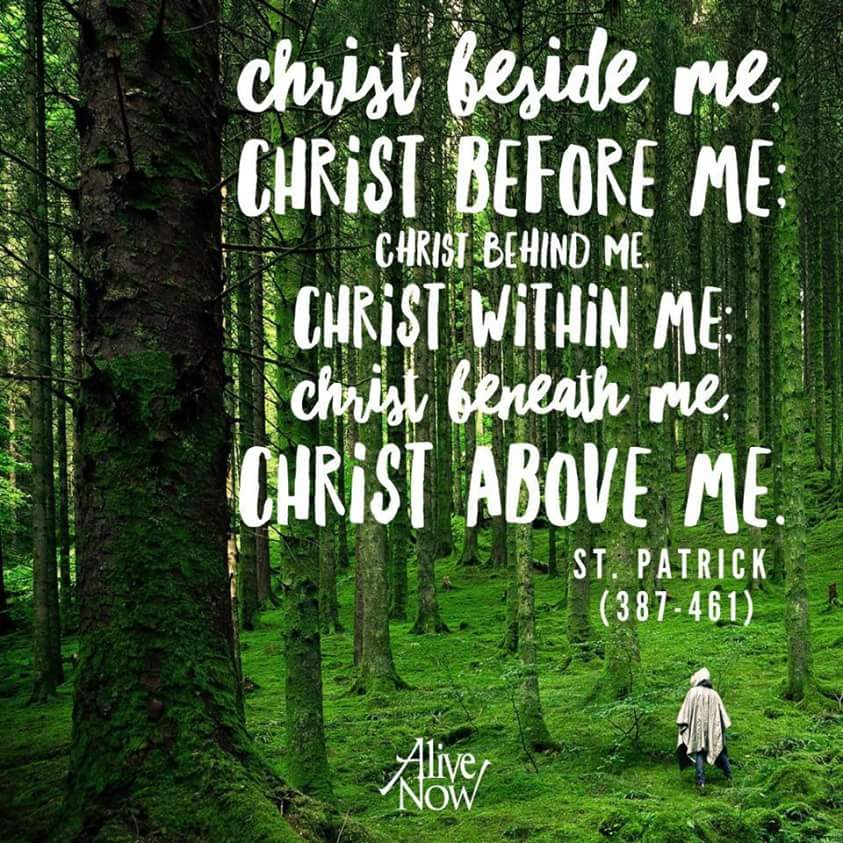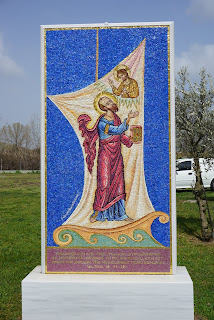As we prepare for
Independence Day celebrations, we often think of hotdogs, watermelon, and
fireworks… some of my favorite times with family and friends happen around 4th
of July celebrations. But when we drill down to the real meaning of the
holiday, I’ll bet the word Freedom is on all our minds. Just a week away, I
could not help but think about this uniquely American holiday as I read through
the lessons for today. It’s mildly annoying… and challenging… to preach on a topic
we think we know so much about, especially when we hold that up against Jesus
and Paul’s teachings.
Everybody wants freedom. Whether
it’s the end of the school year, graduation, or vacation… kids and adults alike
look forward to the freedom that the summer brings. Some of us look forward to
more freedom than we will know what to do with as retirement looms ahead.
The dictionary defines freedom
as the ability to act without hindrance or restraint. But is that how freedom
works? Freedom from all responsibility sounds good for a second, but how long
does it take for us to wish for the comfort of our routines? I’m betting that
even in the freedom of retirement, we will understand that there are
responsibilities… boxes to unpack, community to find, and finding our new sense
of self will take effort and planning, not just acting daily on a whim.
As Americans, we think of
freedom as one of our inalienable rights. Our forefathers said these rights
were granted to us by our Creator – life, liberty & the pursuit of
happiness. It’s so easy to slip into a mistaken belief that my life, my liberty, and my
happiness are the most important thing. In fact, the world does not revolve
around any one of us or our individually held beliefs... And that is not the
kind of freedom that Jesus and Paul are talking about.
In his letter to the
Galatians, Paul reminds us that freedom is not the absence of responsibility. True
freedom is about dedicating our lives to the gifts God gives. Freedom in
Christ, no matter where it leads us, means choices that put others' needs
before our own. At its core, freedom means a willingness to make sacrifices to
serve our country and our communities. As Christians, it means the same.
So how does this happen? Paul writes that in Christ,
we are a new creation. We learn about who we are and the responsibilities
freedom places on us as we study scripture, experience God in worship & mission,
and our life together. Paul was a founder of Christian communities, but he was
also a teacher to them as they grew in faith. Through his visits or the reports
of his disciples, he observed how people were living and teaching, as he heard
reports of their witness.
Most of the writings we have from him were letters
of encouragement and correction. The letter to the Galatians was written
because the church there was caught up in the controversy over whether or not
Gentiles had to become Jews before they could become Christians – in other
words, did the men need to be circumcised?
Paul writes that our freedom is not the authority to
do whatever we want with no consequence. Love is always the first requirement –
not love of self alone, but love as lived in the service of others. Rooting
ourselves in God’s love and modeling that love in the world is how our
experience of freedom grows. So how does that happen?
The Bible’s best lessons are found as we look at the
ways that Jesus and Paul teach us to be in relationship with one another.
Kingdom-living is not just about following the commandments found in the
Bible’s pages or rules from church life in the past. Reducing the faith journey
to a checklist of acceptable and forbidden behaviors gains us nothing, diverting
us from our primary mission – to live and love as Jesus’ witnesses in the
world.
Fortunately, Paul writes of the freedom that teaches
our spirits to live. In Eugene Petersen’s biblical paraphrase, The Message, he
translates the fruit of the Spirit into action words, helping us to see how to
put each of them into practice.
But what happens when
we live God's way? He brings gifts into our lives, much the same way that fruit
appears in an orchard—things like affection for others, exuberance about life,
serenity. We develop a willingness to stick with things, a sense of compassion
in the heart, and a conviction that a basic holiness permeates things and
people. We find ourselves involved in loyal commitments, not needing to force
our way in life, able to marshal and direct our energies wisely. Galatians
5:22-23 The Message)
And how do we do those things, day in and out? Paul
names those gifts: love, joy, peace, patience, kindness, goodness,
faithfulness, gentleness, and the hardest – self-control. They don’t all come
at once, and they are often hard to hold on to, but this fruit – this gift – of
the Spirit gives us the courage and strength to follow where Christ leads, and
to answer when he calls. This fruit grounds us, centers us, and anchors us in
the faith to which we have been called. But what does that look like in
practice? Let’s hear what Jesus says in today’s gospel lesson.
The cost of discipleship is the central theme of the
Gospel text. If we step back and take a “big picture” look at Jesus’ teachings
and interactions with people, we see that he is asking a lot. So when he encountered
people on his journey, there were many different reactions. Some of the people
were insiders, and most of them rejected Jesus as “not their kind of Messiah.”
But it wasn’t enough to say, “No, thanks, he’s not the one.” They needed to
crush his reputation and were willing to do anything to make sure he didn’t
interfere with their leadership in the Jewish and Roman communities.
To others, Jesus’ message brought them close to God
in a new way. This was a new, different way to think about faith. It was also revolutionary,
even dangerous. Bur for people who had never had access to the Kingdom of God
before, it was a risk they were willing to take. In today’s lesson from Luke,
Jesus encounters people who want to test him. The first man said, “Lord, I'm
ready to follow you wherever you go.” Jesus replied, “Foxes have holes, and
birds of the air have nests, but the Son of man has nowhere to lay his
head." Inferred is the requirement that the man would have to accept the
same, - to go into a future without a map or timeline in hand.
To another Jesus said, "Follow me," and
the man replied, "I'll come along but first I need to bury my
father." To this, Jesus replied, "Let the dead bury their dead; but
as for you, go and proclaim the
How hard is it to follow Jesus in this way? In his
book, A Conspiracy of Love, Kurt Struckmeyer writes, “Lots of people believe
in Jesus. They just love him to pieces. They worship and adore him. They praise
his name. They invite him into their hearts and accept him as their Lord and
Savior. But not as many people are willing to follow him.”
As modern-day “Jesus people”, we understand his
words, but do we stand under them? Are we just worshipers of Jesus or are we
followers? Because if we are followers, there is a cost to that kind of discipleship.
Our journey, this Christian life, parallels the journey of Jesus to Jerusalem. Jesus
tells us upfront that our journey with him will not be an easy one. If we
follow in the way of Jesus, we cannot expect to have an easier road than his. Signing
on with Jesus means that everything becomes secondary to serving the Kingdom of
God. Following Jesus will cost us, but it will also make us free.
The balance of all this
freedom comes with practice. And eventually, it changes the way we live every
part of our lives. It is hard? Yes! So how can this be done? That’s where Paul
comes in… he says, “I know you can’t do this on your own, so let these gifts -
this fruit - be your standard and your guide. With this fruit as the foundation
of how we think and act, there is no limit to what can be done.
Many days we come to church looking
for a word of encouragement. The troubles of life swirl around us. Many of us
are smack dab in the middle of caring for our kids and our worrying about our
parents and older relatives. Many work every day, late into the night, to keep a
balance of peace in the world. We are torn between ignoring the news and
becoming fixated on the myriad of crises we see at every turn. We feel our
various understandings of freedom butting up against one another. Ultimately,
we wonder how to make good decisions to keep ourselves and our families safe
and secure. We ask if we are even making a difference.
But if you come to worship to
get away from the overly-political nature of our society, I’m going to
disappoint you, because I think these lessons about freedom and responsibility aren’t
just hypothetical discussions. They are intricate to how we make decisions and
how we are going to live. If he is not just our guide but also our Lord, following
Jesus means caring for people outside our comfort zones. It means digging
deeper into the disturbing news of the day and figuring out what is real and how
to respond as people who follow Jesus. It could mean changing our minds as we
get new information. It could mean interpreting scripture in new ways. It will
always mean working for a world where all of God’s children’s needs are considered
and worked toward, not just our own.
Here, we are gathered without
regard to denomination. But most of us relate to some ecclesial body in the US
or Germany that ministers with the least, the last, and the lost. I’m giving
you a homework assignment this week. Find your denomination or church’s website,
look for the advocacy or relief section, and figure out how you can be a
helper. Maybe it’s giving money. Maybe it’s reading and learning as a family from
available resources. Maybe it’s writing to or calling your members of Congress
to ask for support for legislation that you and your denomination support. Maybe
it’s standing present when others are afraid to be a witness. God is calling us
to serve in some new way. Listen to that voice. You’d be amazed what you can do
from so far away.
When Shawn retired from the
USAF five years ago, he was the one who felt deep in his bones that Germany was
not finished with us yet. And so, we stayed, continuing to serve the military
and local communities in a variety of ways. These last eight years have been
filled with remarkable joys and undeniable sorrows.
The paradox of freedom surrounds all the choices and changes in our lives. With our faith in Jesus, God calls us to the freedom of love and service so that everything we do, we do in love. And so as we go from this place today, and begin a new kind of worship in two weeks, I ask us all to be willing to go wherever God calls, always remembering these important words: “For the fruit of the Spirit is love, joy, peace, patience, kindness, generosity, faithfulness, gentleness, and self-control. There is no law against such things.”
Thanks be to God.
















